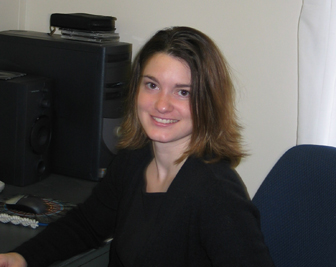The driving force behind my research is the control of waterborne disease
transmission from both watershed protection and drinking water treatment perspectives.
Slow sand filtration is a water treatment option attractive for rural
communities and developing countries because it is reliable, affordable, and
requires minimal maintenance. However, each filter run requires a ripening
period during which filter effluent must be either wasted or recycled back
for refiltration until the filter produces water that meets drinking water
standards. I am interested in making slow sand filtration more efficient,
economical, and practical by using non-traditional media and media modifiers
to enhance filter ripening and delay the onset of filter clogging.
Control of waterborne disease through a better understanding of pathogen
ecology is a related research interest. Cryptosporidium parvum
is a human and animal parasite responsible for an acute gastrointestinal disease
that is self-limiting for otherwise healthy people but prolonged and life-threatening
for the immunocompromised population. Cryptosporidium spp. oocysts
are a challenge to remove from drinking water supplies because they are resistant
to chlorine disinfection and too small to effectively filter. I have
completed lengthy environmental studies tracking Cryptosporidium spp.
oocysts in the Wachusett Reservoir watershed in central Massachusetts (the
drinking water source for Boston and surrounding municipalities) to identify
sources and species of Cryptosporidium oocysts as well as any seasonal
trends associated with Cryptosporidium spp. presence. I have
shown that multiple species and genotypes of Cryptosporidium are present
in the watershed, and because not all species cause disease in humans, this
finding supports the need for species-specific detection methods to assess
the potential health risks of Cryptosporidium spp. presence in the
environment. In addition, my work has shown that geese are an important
source of Cryptosporidium spp. oocysts, particularly in agricultural
areas. I have identified novel 18S rRNA genotypes of Cryptosporidium
spp. in geese, revealing more extensive parasite diversity in the environment
than was initially reported. The goal of my work is to provide a greater
understanding of the environmental behavior of Cryptosporidium spp.
oocysts so that watershed management can minimize public exposure to this
waterborne pathogen.
